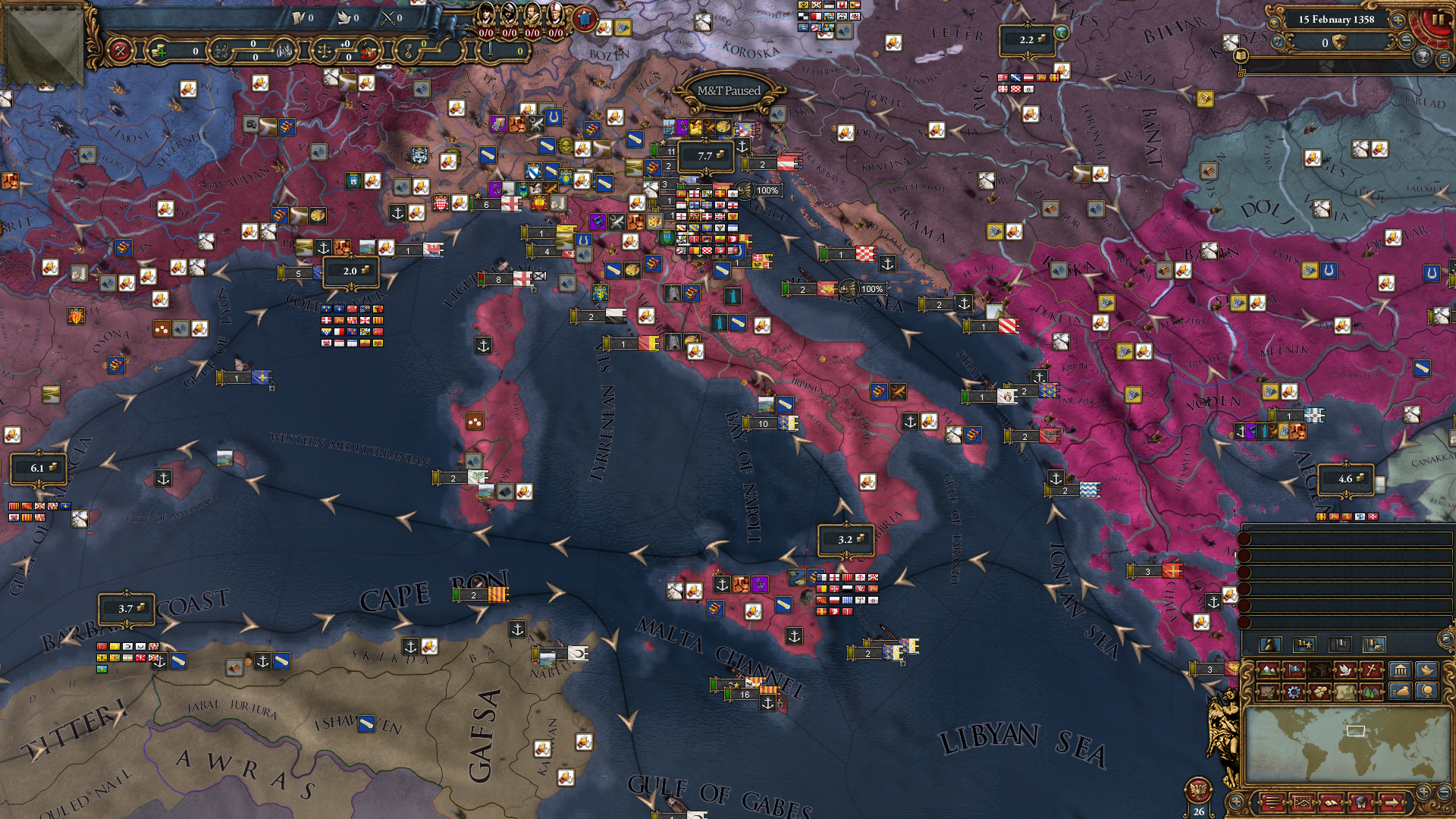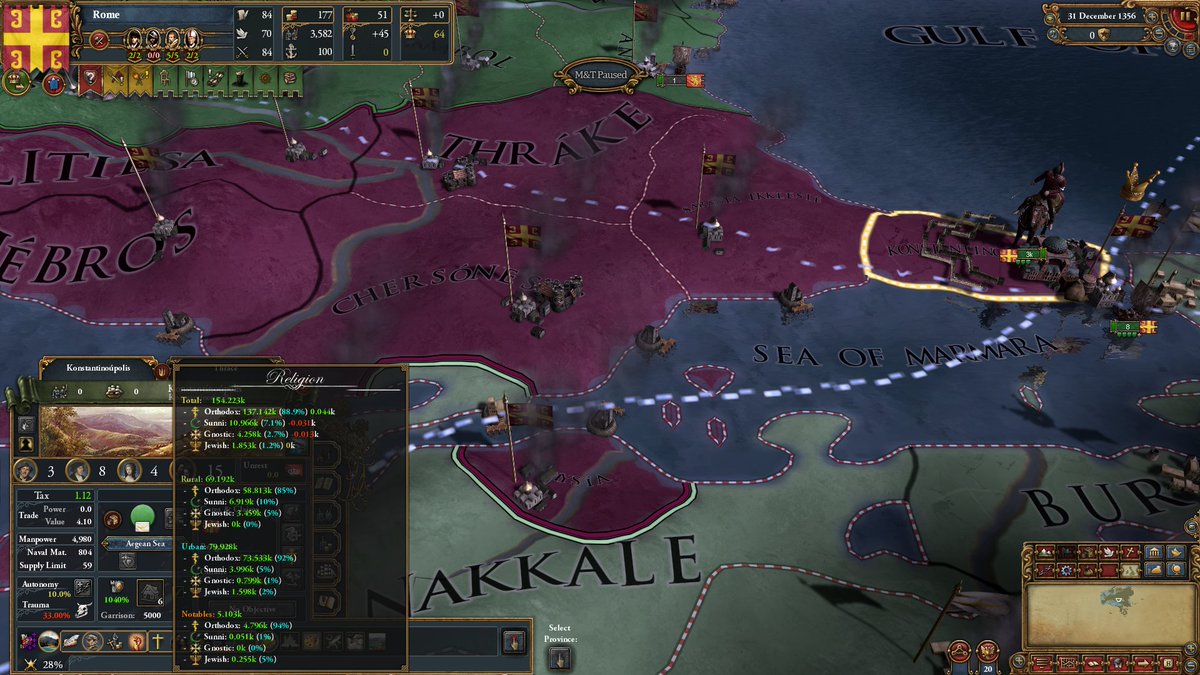


If a city loses much of its population and infrastructure, it will be weakened permanently, and if you then invest in another nearby province a new city might arise. This system means that money is now a lot more important compared to monarch power, especially if you consider that wars are more expensive. But then, all this free economic power will attract new people fairly quickly. If you get conquered and it coincides with a plague, heck, throw in a famine as well, you'll lose a ton of population and income will plummet. Your country's development is not so much in the population but more in the infrastructure. Keeping in the middle is fine for a normal game. Same goes for many other mechanics, going to the extremes is a high risk/high reward thing. Keeping it low through weak estates and money like you see here is dangerous, but potentially rewarding. You won't have 0 inflation or corruption, instead it will settle down at a decent level and change based on your decisions. The mod development is led by Gigau, Lukew, Demiansky, Myzael, DHarper, Sun Wu, Malorn and supported by the M&T team.It makes eu4 more historically plausible and less of a min-maxing game.

Reworked religious mechanics with Dharper's Dei Gratia.Extends the timeline, offering five hundred years of history (1356-1856).Fifteen-hundred new provinces and counting, as well as new nations.The second is based on a quote of Benjamin Franklin: " in this world nothing can be said to be certain, except death and taxes." In Meiou they changed to the first word from Austria to Mihi, meaning "it is my destiny to rule the world". Which meant Autria est imperare orbi universo, that is "it is Austria's destiny to rule the world". The first part of the name is a play on the old Habsburg motto AEIOU. Almost every aspect of the game has been either reworked or completely redone. It adds over a thousand new provinces and hundreds of new nations to conquer and tax.
_seal_1905.jpg)
This mod has been formed by the conversion and merger of two major EUIII mods: MEIOU, and Death & Taxes.


 0 kommentar(er)
0 kommentar(er)
